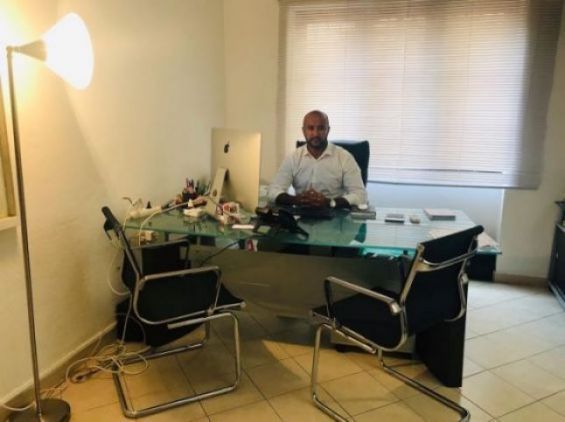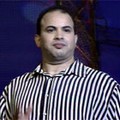Rachid Amamou, 40, knows Angola like the back of his hand. He has been living in the southwestern African country for almost twenty years. Based in Luanda, where he learned the ins and outs of the real estate business, the Moroccan expatriate moved there in June 2001 with his wife and child to work in the company of his in-laws.
Originally from Oyonnax, a commune in France, he followed a civil engineering curriculum in high school before pursuing his higher education in Annecy in the same field. At the age of 21, his father-in-law offered him a job in the family business.
«The mother of my children is from Switzerland. Her grandparents, who are doctors, arrived in Angola in 1942 as part of the Protestant mission to treat tuberculosis and leprosy», he told Yabiladi. Two years after his arrival, he chose to leave the family’s business and work for himself. «Working with your in-laws is not an easy thing to do», he said.
In 2004, he joined a Norwegian risk management firm called Det Norske Veritas (DNV). «For five years, I was head of a department at DNV. I then started a long-distance degree in mechanical engineering», he recalled. Amamou then moved to Malaysia, Norway and South Africa, where he worked in project management, before returning to Angola.
Easy integration
The year 2010 was a turning point in his life. The Moroccan-French businessman created his own civil engineering company, Myrapro Soluções Lda, which is specialized in construction works. The career shift, however, was not such an easy feat : «At first, we are in the complete unknown. We do not know what tomorrow will bear for us and we have no guaranteed salaries at the end of the month. We must be able to find a place in the market, convince customers that we are able to provide them with what they need, to guarantee them a quality service and to sustain that over time».

But very quickly, he discovered the potential of his country of adoption : «I arrived in Angola during the last year of the civil war (1975-2002, ed). The country was devastated, everything had to be done again. With little means and a lot of will, there is so much you can do there. Adding my brick to the wall, being able to be useful to the society, that meant a lot to me».
Indeed, that made his integration easy. «Speaking French and Spanish helped me a lot to learn Portuguese. After three, four months, I spoke the language very well. We learn languages easily when we are born to immigrants», he explained.
An added value for Angola
«If you go to Spain with Spanish language skills you've acquired in France, there are many places where you wouldn't understand anything. On the other hand, if you go to Mexico, it's a clear Spanish, very easy to listen to, to learn and to hear. It sounds like when French people speak Spanish! Portugal's Portuguese is real tough to understand, especially when you go to the north. Whereas when you go to Angola, it's a bit like Mexico : the language is more clear, more flexible and easier to understand», he added.
«I was 21 or 22 years old. I found myself having to manage 150 people. It allowed me to integrate easily, I did not even have a choice».
As a consultant for local companies in the fishing sector, Rachid Amamou believes in the potential of his host country. «Morocco is an example for Angola in the fishing industry. The fishing techniques are the same, the controls too. I think that if Moroccan companies needed people who knew the language, the system and the Angolan market, I could be of value», said the multilingual entrepreneur who speaks English, Spanish, Italian and Portuguese.





 chargement...
chargement...













